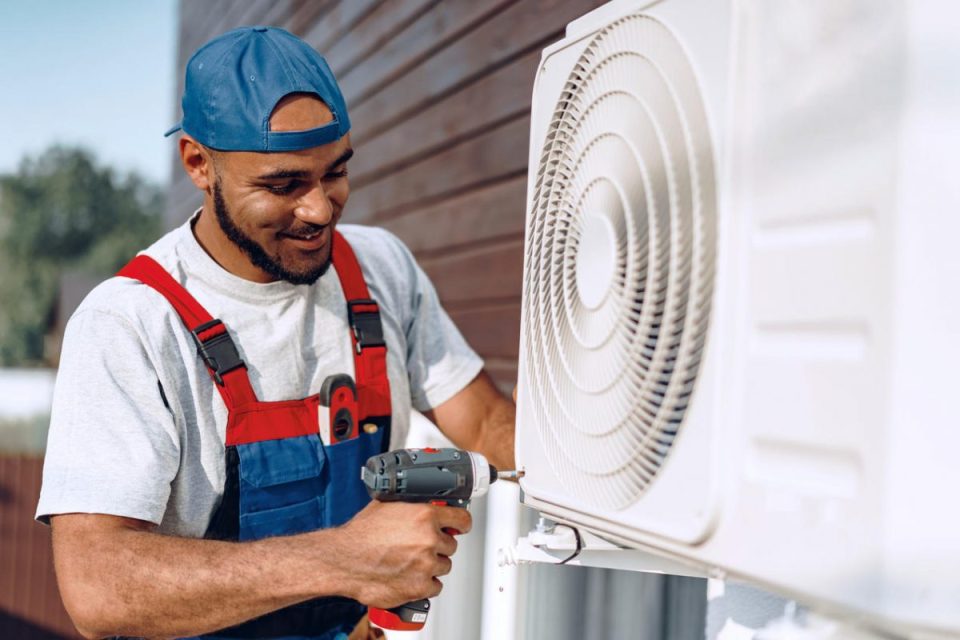When it comes to ensuring comfort in your home, a well-functioning HVAC system plays a pivotal role. Heating systems, particularly during colder months, are indispensable in maintaining a warm and cozy indoor environment. Yet, like any mechanical system, HVAC units require proper care, maintenance, and optimization to run efficiently and last longer. Whether you’re looking to enhance your home’s energy efficiency, reduce heating costs, or extend the lifespan of your heating system, these top 10 heating tips will help you get the most out of your HVAC system.
1. Schedule Regular HVAC Maintenance
One of the best ways to keep your heating system in top condition is by scheduling regular maintenance. Ideally, this should be done before the start of the heating season. Regular tune-ups allow HVAC technicians to inspect your system for any signs of wear and tear, clean the components, and ensure everything is running optimally. Preventative maintenance can prevent breakdowns, extend the lifespan of your unit, and even improve energy efficiency.
Tip: Aim for a biannual service—once in the spring for your cooling system and once in the fall for your heating system. This ensures that both parts of your HVAC system are ready to function properly when you need them most.
2. Change the Air Filters Regularly
Air filters are one of the most overlooked components of an HVAC system. Over time, they accumulate dust, dirt, and allergens, which can reduce airflow and make your system work harder to heat your home. Clogged filters also decrease air quality and contribute to potential system malfunctions.
Tip: Check your air filters monthly, especially during periods of heavy use, and replace them every 1 to 3 months, depending on the type of filter you use. If you have pets or live in a dusty environment, consider changing your filters more frequently.
3. Seal Leaks in Ductwork
If your ducts are leaking, heated air may be escaping before it reaches its destination, causing your HVAC system to work harder and resulting in wasted energy. Leaky ducts can also cause hot and cold spots in your home, making it uncomfortable and inefficient.
Tip: Have your ducts professionally sealed or do a DIY inspection to check for any visible leaks. Pay special attention to areas where ducts are connected and check for gaps or holes. Use mastic sealant or foil tape to seal small leaks, and consider ductwork insulation if your ducts are in unconditioned spaces like attics or crawlspaces.
4. Install a Programmable Thermostat
A programmable thermostat allows you to set your heating system to run only when needed, ensuring that you’re not wasting energy when you’re not home or while you’re sleeping. Modern smart thermostats can learn your preferences over time, adjusting the temperature for comfort and efficiency.
Tip: Set the thermostat to lower temperatures when you’re away or asleep. A general rule of thumb is to set it at 68°F (20°C) during the day and lower it to around 60°F (15°C) while you sleep. This small adjustment can result in significant savings on your heating bills.
5. Optimize Insulation in Your Home
Your HVAC system shouldn’t be the only line of defense against the cold. Insulation plays a crucial role in keeping heat inside your home, preventing warm air from escaping and cold air from seeping in. Proper insulation helps your heating system maintain a comfortable temperature more efficiently, reducing energy consumption and strain on your unit.
Tip: Ensure that your attic, walls, and floors are adequately insulated. Pay special attention to windows, doors, and areas where drafts are common. Installing weather stripping and using draft stoppers can help prevent air leaks and increase the efficiency of your HVAC system.
6. Close Curtains and Blinds at Night
While it might seem like a small detail, closing curtains and blinds at night can help to retain heat inside your home. During the day, the sun can naturally warm your home, but once the sun sets, the temperature can drop rapidly. Windows can act as a point of heat loss, especially if they are not energy-efficient.
Tip: Use heavy curtains or insulated blinds to keep the warmth inside. During the day, open the curtains to let the sun in, and close them at night to keep the chill out. For maximum effectiveness, consider investing in energy-efficient windows that provide better insulation.
7. Use Space Heaters Efficiently
While using space heaters can be a quick way to warm up individual rooms, they should be used wisely to avoid excessive energy consumption and safety risks. A space heater is most effective when used to heat small, occupied areas rather than relying on your main HVAC system to heat the entire home.
Tip: Only use space heaters in rooms you occupy, and always turn them off when you leave the room or go to bed. Ensure that the space heater is placed on a flat, non-flammable surface and never cover it with blankets or clothes. Also, choose energy-efficient space heaters to minimize additional heating costs.
8. Ensure Vents and Registers Are Unobstructed
Blocked vents and registers prevent the proper flow of warm air throughout your home. Furniture, rugs, curtains, and even dust can obstruct airflow, making it harder for your HVAC system to heat your home efficiently.
Tip: Regularly check all vents and registers in each room to ensure they’re unobstructed. Move furniture away from vents, and keep registers clean and free of dust. A good rule of thumb is to allow at least 6-12 inches of clearance around each vent for optimal airflow.
9. Consider Zoning Systems for Better Control
If you have a large home with different heating needs in various areas, a zoning system might be the solution. Zoning systems divide your home into sections, or “zones,” each with its own thermostat and control system. This allows you to direct heat only where it’s needed, reducing energy waste and enhancing comfort.
Tip: If your current HVAC system doesn’t have a zoning system, consider installing one. This is especially useful in multi-story homes, where temperatures can vary from one floor to another. By heating only the zones you use, you can improve both comfort and energy efficiency.
10. Upgrade to a More Efficient Heating System
While this tip might involve a larger upfront investment, upgrading to a more energy-efficient heating system can save you a significant amount of money in the long run. Newer systems, such as high-efficiency furnaces or heat pumps, use less energy to heat your home and can often qualify for rebates or tax credits.
Tip: When considering an upgrade, look for systems with a high Annual Fuel Utilization Efficiency (AFUE) rating, which measures the efficiency of your heating system. A higher AFUE rating means your system is more efficient, which will translate into lower energy costs over time.
Conclusion
A well-maintained and efficient heating system is crucial for a comfortable home during the colder months. By following these 10 heating tips, you can maximize the performance of your HVAC system, reduce energy costs, and improve indoor comfort. Regular maintenance, the use of a programmable thermostat, and proper insulation are just a few of the many strategies that can optimize your home’s heating system. Whether you’re dealing with a small repair or looking to invest in a more efficient system, these tips will help you ensure that your heating system is running at its best.

